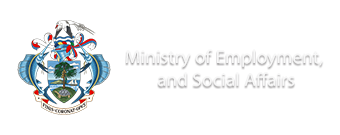Boosting effective decision-making and efficient usage of resources
According to various researches, transparency and accountability have emerged over the past decade as key ways to address both developmental failures and democratic deficits.
Good governance in the public sector on the other hand promotes effective decision making and efficient use of resources, and it strengthens accountability for the stewardship of those resources.
To enhance the good practice locally, the Productivity Unit within the employment department in collaboration with The Guy Morel Institute (TGMI) is hosting a two-day workshop gathering civil servants aimed at promoting effective decision-making and efficient usage of resources.
The training, which is being conducted by the executive director of the TGMI, Shella Mohideen, has as its main objectives the understanding of good governance and its value, the understanding of the importance of accountability and transparency, putting into practice the principles of good governance for better service delivery, identifying and managing risks for better public sector outcomes and also critically analysing existing governance practices.
Launching the two-day training yesterday, head of the Productivity Unit, Maryvonne Francis, noted that the training is part of the ongoing activities under the National Productivity Strategic Plan (NPSP) 2017-2021 in recognition of the importance of improving performance in all sectors, especially in the public sector.
She explained that productivity plays a leading role in economic growth, organisational performance, competitiveness and innovation.
Ms Francis further added that the training will further promote a culture of good governance by demonstrating its values through effective accountability framework.
This, she said, include determining goals, strategic planning, result-based budgeting, performance management and monitoring along with evaluation.
Among the different topics being covered are the clear understanding of the link between the organisation’s legal framework, mandate, mission and governance and on outcomes for citizens and service users, the understanding of governance roles and functions, and performing effectively in these defined functions and roles, promoting a culture of good governance by demonstrating the values of good governance through an effective accountability framework, developing rigorous systems for taking informed, transparent decisions and managing risk, developing good governance indicators in a framework for assessing good governance practice, understanding the essential linkages, coherence and integration within and across the RBM, assessing and developing the capacity and capability of people with governance responsibilities to ensure appointed civil servants have the skills, knowledge and mind-set required to perform at high level and also engaging stakeholders and making accountability real.
Roland Duval



